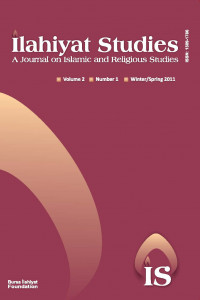Kitap İncelemesi
Early Ibāḍī Literature: Abu l-Mundhir Bashīr b. Muḥammad b. Maḥbūb Kitāb al-Raṣf fi l-Tawḥīd, Kitāb al-Muḥāraba and Sīra, introduced and edited by Abdulrahman al-Salimi and Wilferd Madelung
Öz
First paragraph:
Scholars of Islamic studies have increasingly come to recognize
the importance of the Ibāḍiyya as a group that preserves a unique
perspective on Islam: as the only surviving sectarian relatives of the
Khārijites, the Ibāḍiyya offer important non-Sunnī and non-Shīʿī
views on early Islamic history, theology and law. Contemporary
Ibāḍīs of North Africa and Oman possess a remarkable corpus of
texts, some of which date back to the early medieval period of Islamic
history. Large collections of Ibāḍī manuscripts can also be
found in Egypt and Tanzania (specifically in Zanzibar). Many important
Ibāḍī works have become available to researchers in recent decades,
due in part to the efforts of individual Ibāḍī and non-Ibāḍī
scholars, but especially to the Omani Ministry of National Heritage
and Culture (Wizārat al-turāth al-qawmī wa-l-thaqāfa). Nevertheless,
and despite these welcome strides forward, much Ibāḍī material
remains in manuscript form. In the work under review, Drs. Madelung
and al-Salimi present in critical Arabic edition three heretofore
unpublished early Ibāḍī works by Abū l-Mundhir Bashīr ibn
Muḥammad ibn Maḥbūb (d. ca. 290/908): the Kitāb al-raṣf fī l-tawḥīd
(Book of Paving about Divine Unity), Kitāb al-muḥāraba (Book of
Warfare) and the Sīra (Epistle). In addition, the authors supply a short
five page introduction, in English, discussing the author, the texts and
manuscripts consulted for the edition, as well as a list of works cited
(in Arabic).
Scholars of Islamic studies have increasingly come to recognize
the importance of the Ibāḍiyya as a group that preserves a unique
perspective on Islam: as the only surviving sectarian relatives of the
Khārijites, the Ibāḍiyya offer important non-Sunnī and non-Shīʿī
views on early Islamic history, theology and law. Contemporary
Ibāḍīs of North Africa and Oman possess a remarkable corpus of
texts, some of which date back to the early medieval period of Islamic
history. Large collections of Ibāḍī manuscripts can also be
found in Egypt and Tanzania (specifically in Zanzibar). Many important
Ibāḍī works have become available to researchers in recent decades,
due in part to the efforts of individual Ibāḍī and non-Ibāḍī
scholars, but especially to the Omani Ministry of National Heritage
and Culture (Wizārat al-turāth al-qawmī wa-l-thaqāfa). Nevertheless,
and despite these welcome strides forward, much Ibāḍī material
remains in manuscript form. In the work under review, Drs. Madelung
and al-Salimi present in critical Arabic edition three heretofore
unpublished early Ibāḍī works by Abū l-Mundhir Bashīr ibn
Muḥammad ibn Maḥbūb (d. ca. 290/908): the Kitāb al-raṣf fī l-tawḥīd
(Book of Paving about Divine Unity), Kitāb al-muḥāraba (Book of
Warfare) and the Sīra (Epistle). In addition, the authors supply a short
five page introduction, in English, discussing the author, the texts and
manuscripts consulted for the edition, as well as a list of works cited
(in Arabic).
Toplam 0 adet kaynakça vardır.
Ayrıntılar
| Birincil Dil | İngilizce |
|---|---|
| Konular | Din Araştırmaları |
| Bölüm | Kitap İncelemeleri |
| Yazarlar | |
| Yayımlanma Tarihi | 1 Haziran 2011 |
| Gönderilme Tarihi | 20 Şubat 2011 |
| Yayımlandığı Sayı | Yıl 2011 Cilt: 2 Sayı: 1 |


